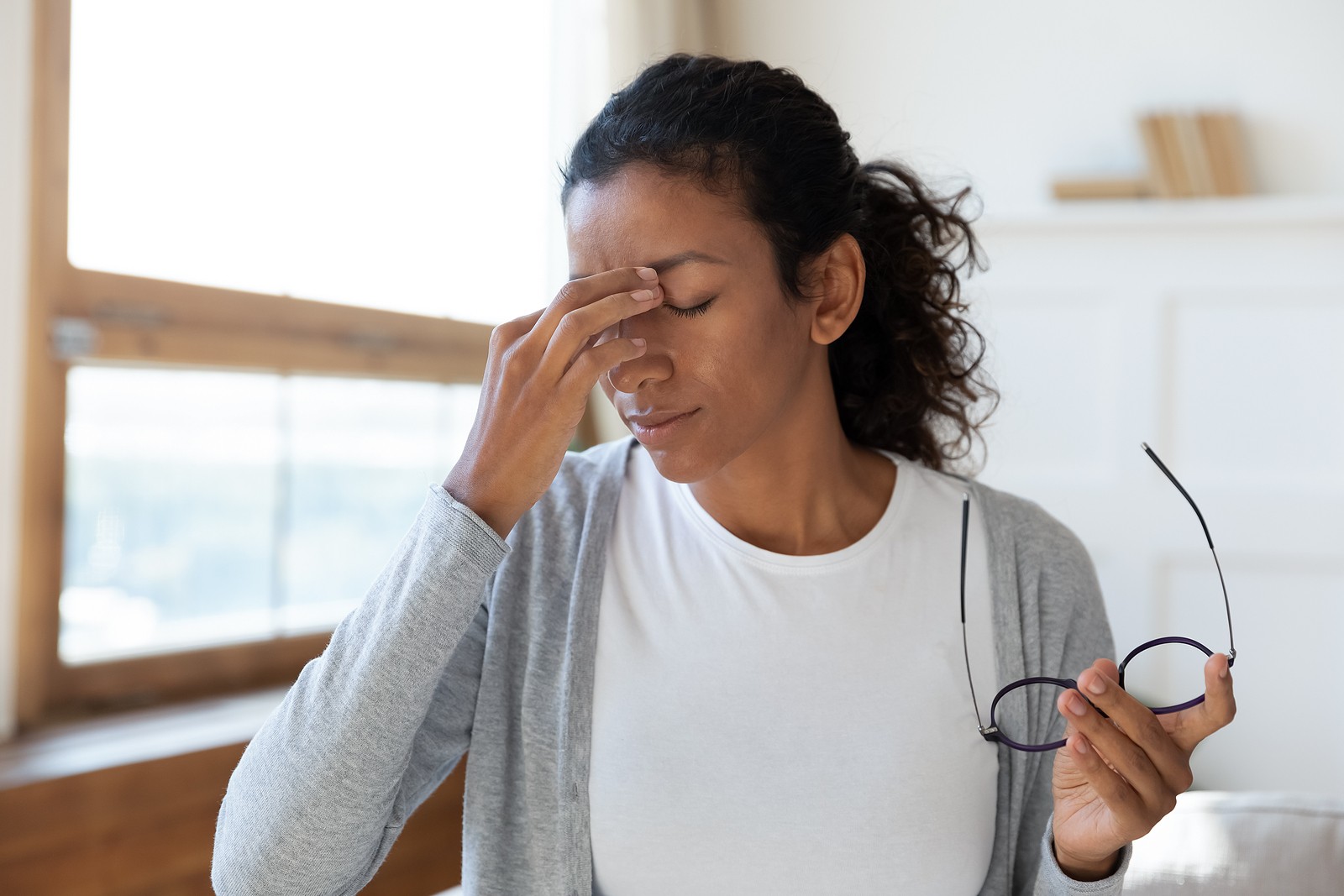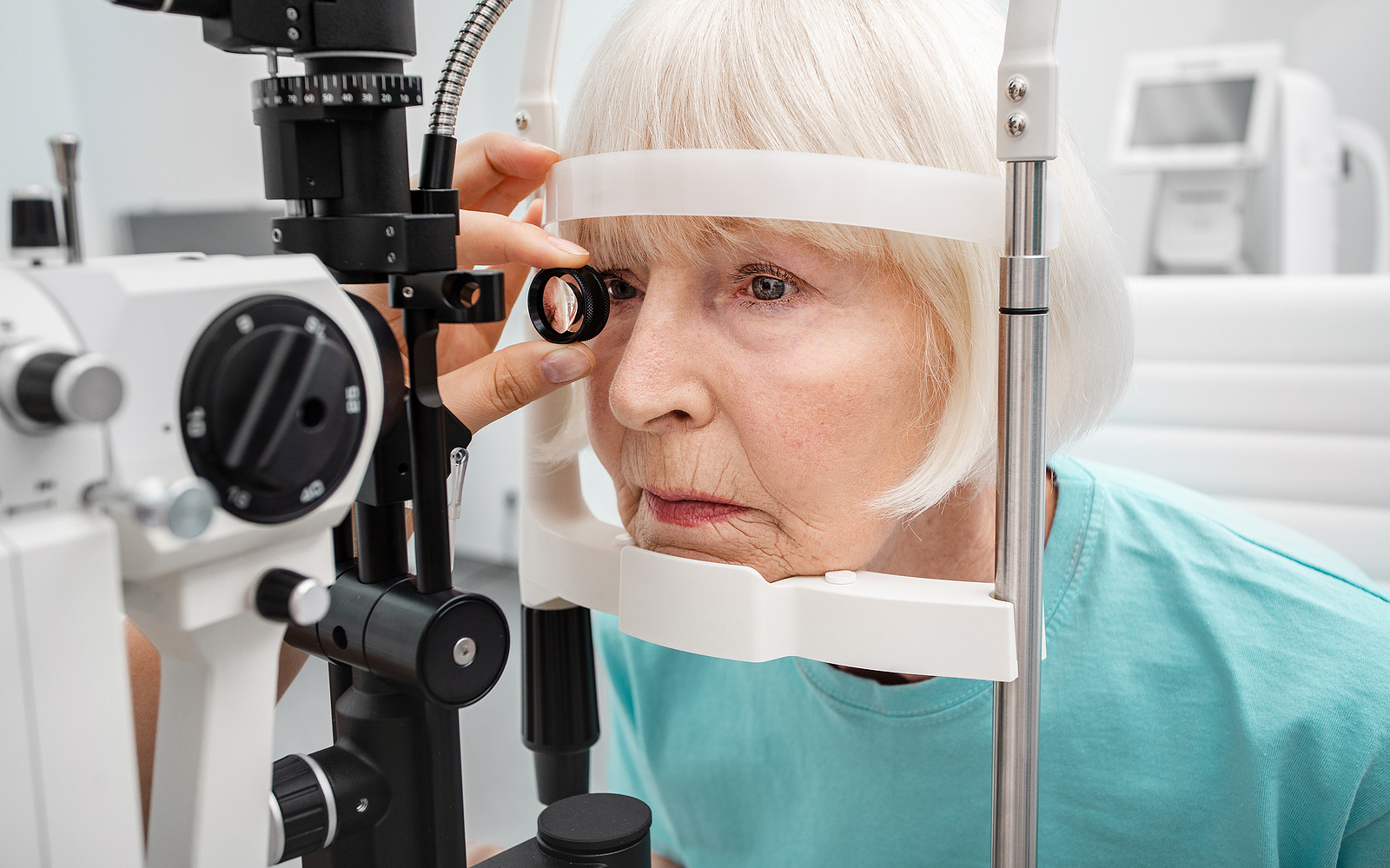8 Common Causes of Eye Twitching

You can develop an eye twitch for a variety of reasons, including the eight discussed below. The involuntary movement isn’t typically too worrisome. However, if it persists or accompanies pain in one or both eyes, make an appointment with one of our eye doctors in Mesa and Chandler.
What Is Eye Twitching?
You might be surprised to know that there is a scientific name for eye twitching — myokymia. This condition describes movement by the eyelid, not the eye. It’s common and, typically, harmless. Usually, it only lasts a few minutes. So, if you have an eye twitch that doesn’t go away quickly, make an appointment with one of our doctors in the greater Phoenix area.
There’s no point in worrying until you have a valid medical opinion. However, it is important to go get checked out. There are neurological conditions such as hemifacial spasms and blepharospasm. These rare conditions come with more obvious eye twitching and require immediate evaluation.
To put your mind at ease, we have identified the most common causes for eye twitching. Learn how you can help prevent distracting eye twitching and when you should see a doctor asap.
What Causes Eye Twitching and What Can You Do About It?
Do you find your eyelid twitching more often these days? Involuntary muscle spasms cause eye twitching. Learn the reason behind them and how you can prevent them or reduce the twitching severity.
1. Stress Muscle Spasms
If your eye twitching gets worse during stressful situations, try to relax as much as possible. We recommend yoga, taking some time off, or just relaxing with friends. Once you reduce your daily stress, you may find that your eyelid twitch disappears.
2. Fatigue
The modern world runs at the speed of light or beyond it. Too much screen time, sleep deprivation and other factors can cause severe fatigue that makes your eyelids contract involuntarily. If you catch up when you’re asleep and maintain a regular sleep schedule, you should see an improvement in your condition.
3. Eye Strain
If you went through vision correction surgery years ago, chances are you stopped needing glasses. However, as you age, your eyes change. Many people who undergo vision correction surgery end up needing reading glasses at some point. To alleviate this condition, try to reduce your screen time as much as possible until the twitching subsides. Every 20 minutes, step away from your computer, tablet or phone and focus on an object more than 20 feet away or at least 20 seconds. Once you get into the habit, you may experience less eye strain.
You probably don’t want to hear this, but you may also need to make an appointment for an eye exam. Going back to reading glasses isn’t the end of the world, especially if you still have a good far vision. Ask your doctor to recommend eyeglasses to make working on the computer easier.
4. Caffeine
Before you throw out all the coffee and tea in your home, remember that moderation works just as well. If you have recently begun to drink more caffeine to stay awake throughout the day, try switching to decaf or cutting back on drinks with caffeine in them. If your excessive eye twitching continues after making these changes, make an appointment with one of our doctors in Mesa and Chandler.
5. Alcohol
Some people react differently when drinking alcohol. So, if your eyelids begin to twitch after a few glasses of beer, wine or other liquor, abstain from use until the twitching stops.
6. Dry Eyes
As you grow older, you may develop dry eyes. This is particularly true for those over 50. However, medications, vision correction surgery and cataract surgery may result in dry eyes. That might take some getting used to. Dry eyes also affect adults over 50, those who use computers heavily and those taking medications, including antihistamines or antidepressants.
If your eyes feel gritty or dry, make an appointment at our office for an evaluation.
7. Nutrition Problems
If your body doesn’t get the nutrients it needs to thrive, you may experience a variety of symptoms, including a twitchy eye. Consult one of our eye doctors in the greater Phoenix area to discuss eye healthy foods that can help preserve your eyesight and prevent conditions such as eye twitching.
8. Allergies
Even though allergies make your eyes feel itchy and swollen, try not to rub them. This can cause histamines in the eyelid to encounter your tear film. As a result, you may end up with an eye twitch.
What If Your Eye Twitches After Cataract Surgery?
During your vision correction surgery or cataract surgery consultation, ask your doctor any questions you may have regarding eye twitching.
Our doctors specialize in cataract and LASIK surgery in Mesa and Chandler. Don’t let twitching affect your quality of life. Set up an appointment with one of our eye doctors in Mesa and Chandler!
[DISPLAY_ULTIMATE_SOCIAL_ICONS]








